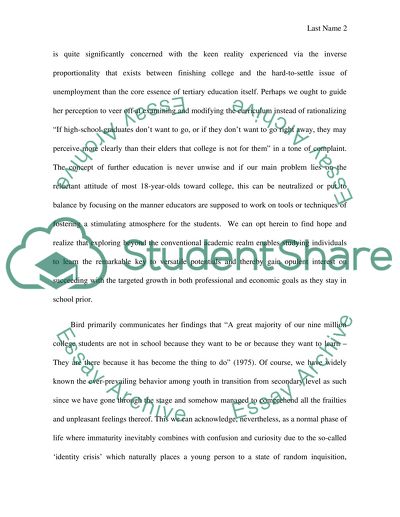Cite this document
(“College is a Waste of Time and Money by Caroline Bird Essay”, n.d.)
Retrieved de https://studentshare.org/english/1470516-critical-analysis-of-college-is-a-waste-of-time-and-money-by-caroline-bird
Retrieved de https://studentshare.org/english/1470516-critical-analysis-of-college-is-a-waste-of-time-and-money-by-caroline-bird
(College Is a Waste of Time and Money by Caroline Bird Essay)
https://studentshare.org/english/1470516-critical-analysis-of-college-is-a-waste-of-time-and-money-by-caroline-bird.
https://studentshare.org/english/1470516-critical-analysis-of-college-is-a-waste-of-time-and-money-by-caroline-bird.
“College Is a Waste of Time and Money by Caroline Bird Essay”, n.d. https://studentshare.org/english/1470516-critical-analysis-of-college-is-a-waste-of-time-and-money-by-caroline-bird.


